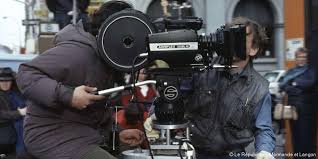
Being an actor, and therefore a person in the movie industry, you will need to make an effort to understand the countless key folks who are important to your career. There are numerous different people in the entertainment industry who are important to an actor. It’s important that you know who this type of person and what they do since you might be working closely together really soon as your career begins to take off. Here are a few you should know.
Who Are The People Involved In The Acting Business?
1. The Talent Agent
A talent agent is someone who finds work for an actor in trade for 10-15% (10% for union actors, typically more for non-union) of the actors’ earnings. They have a large network of contacts and clients and use this network to have interviews and auditions for the actor. They also will continue to work on the terms of your contract whenever you get a job. As an actor, you are the product and the agent can be said to be the salesperson.
2. The Manager
A manager is a person hired by the actor to locate work, give advice, and generally guide the actor’s career. With the exception of child actors (who often need extra development and guidance to the business), most actors won’t require an actual manager until they’re very successful.
3. The Casting Director (CD)
The Casting Director (CD) is hired by the producers of a show to locate talent (or “cast”) for the show. These are individuals who the agent will send photos and resumes to, and the actor will audition for. While it is achievable to submit your photo and resume directly to a Casting Director, they mostly consider actors submitted by an agent.
4. The Producer
A producer is a person in charge of most of the “behind the scenes” work of a show or film. They bring together the script, director, and actors, then oversee the film until it is released. The easiest way into Hollywood is knowing a company, be they family or friends. Unfortunately, for the majority of us, this isn’t possible. But if you do happen to really have a connection, don’t hesitate to use it. Who knows, you could be the next Tori Spelling.
5. The Director
The director is one who interprets the written book or script. This individual oversees all creative areas of the production. Also, the one who yells “Action!”
6. The Director of Photography
The director of photography is the person with expertise in the art of capturing images. Here is the person accountable for creating the overall look of the film. Including creating the shots by establishing the placement of both cameras and lights. He or She is the chief cinematographer.
Now that you understand who’s who, take a little time and brush up on some film vocabulary. Like every other business, the film industry has unique terminology and language. The more terms you understand, the easier it is to understand everything going on around you.
What Are The Meanings Of Some Terminology Used In The Acting Business?
1. What Is An “Audition”?
An audition is the first time you go in for an acting job. You will be required to read a script or do whatever of the casting director asks you to do.
2. What Is A “Callback”?
A Callback is basically the second audition. After you’ve already auditioned for a role, the director, producer, the ad agency and others will be present to see the best of the best, from the shortlisted auditioners.
3. What Are “Sides”?
Slides are parts of a script that you will be asked to read. Casting directors choose specific pages in a script for actors to audition with. They could be consecutive scenes, one line, or sections from different parts of a full screenplay.
4. What Does “On Avail” Mean?
This is where the casting director calls your agent or manager to ask if you’re available for the specified shoot dates. The director then takes note of your availability and informs the person deciding on who to cast.
5. What Does “On Hold“ Mean?
After asking if you’re available for the shoot dates, this is where the film stakeholders book out time, for you. However, this doesn’t mean you’ve got the work. Regardless, they will be paying you a holding fee to claim that day, until they finally decide whether or not they would wish to cast you.
6. What Is A “Booking” In Acting?
A booking is basically any acting job you get to be a cast in.
7. What Is The Meaning Of, To “Book out“?
When you are unavailable to audition or work on projects for almost any reason (vacation, illness, other bookings). You need to inform your agent for them to book you out on their calendar and not submit you for work throughout that time.
8. What Is A “Go See” In Acting?
This is basically a modeling audition. You go in, show your portfolio, they see you and then take a photo. Hence the name “go see.”
9. What Is A “Voice-Over”?
A voice-over is an artistic work that involves voice recordings only. There is no on-camera work, therefore it generally does not matter how you look like or how old you are, only what you sound like or what you can do with your voice.
10. What Is A “Demo Reel”?
A demo reel is a collection of clips of your projects from commercials, television, film and more. This showcases your talent.
11. What Is A “Headshot“?
A headshot is an image of you, usually consisting of your head and shoulders, or from the waist up (¾ shot).
12. What Is A “Zed Card”?
A Zed Card is a modeling card (similar to a headshot) but is double-sided with four to five pictures showcasing different looks.
13. What Is “The Board” In Auditioning?
The board is posted at casting sessions; it instructs you what direction to go and provides all the audition information needed.
14. What Is “The Mark” In Filming?
The mark is typically an “X” marked by tape that indicates where you are to stand whenever you fall into line for the camera.
15. What Is “Slate” In Auditioning?
This is when you say your name, age, and show profiles of your face prior to beginning the actual audition.
16. What Is “Cold Read” In Auditioning?
A Cold Read is when you are given a script and expected to do with no time to study and prepare.
17. What Is A “Cast Breakdown” In Casting?
A cast breakdown is a listing of characters and attributes. Including ethnicity, age, personality traits and any restrictions or specifications a casting director will put together for sending to agents to be able to cast a project. Essentially a description of every character.
18. Who Is A “Principal” Actor?
A principal is the main actor, or one whose face is seen on camera.
19. Who Is An “Extra” Actor?
A background actor who doesn’t have spoken lines.
20. What Are “Regional” Commercials?
Regional Commercials refer to commercials that are broadcast in a specified area of the country.
21. What Are “National” Commercials?
National Commercials refer to commercials that can be broadcast nationwide
22. What Is “The Screen Actors Guild (SAG)”?
Screen Actors Guild (SAG) is the main acting union that protects actors’ wages and working conditions.
23. What is A “Non-Union” Actor or Project?
A project or actor that’s not associated with or doesn’t belong to an actor’s union, such as SAG or AFTRA.
24. What Is “Taft Hartley”?
Taft Hartley is the fine a business must buy employing a non-union actor on a union job.
25. What Is A “Residuals” Payment in Acting?
Residuals payments are money paid to an actor every time a union job (commercial, television show, film) is broadcast.
26. What Is A “Buy-Out” Payment in Acting?
A buy-out is when an actor is paid a flat fee instead of residuals.
27. What Is A “Cable” Broadcast
A Cable Broadcast refers to when something will broadcast only on cable channels.
28. What Is A “Wild Spot” In Commercials?
A wild Spot identifies whenever a project (mostly commercials) will run on both network and cable programming.
29. What Is A “Scale” Of Payment In Acting?
The minimum amount an actor can be paid for a job as set forth by the union.
30. What Is The “Session Fee” Of Payment In Acting?
This term sometimes used instead of “scale”. However, it can also refer to non-union work, where pay is a set amount per day or per week.
31. What Is A “Non-Air” Filming?
Something that’s being produced as a test and won’t air on television.
32. What Is a “PSA” In Broadcast?
A public service announcement.
33. What Is “Pre-Read” In Auditioning?
A pre-read is when you are called in to read for a television show or other filmed project. It is not really an audition, more like a pre-audition. Pre-reads are usually very brief.
34. What is A “Sitcom”?
A Sitcom is a half-hour comedy show.
35. What is “MOW” In Film?
MOW stands for (Movie Of the Week). It is basically the video of the week, produced for television broadcast.
36. What Is “Screen Test” In Auditioning?
This Is The final audition for a film or television series, as a regular cast member. This usually requires you to undergo hair and make-up, and perform a scene on camera, as you would on a regular workday in order for the producers to finalize casting.
37. What Is “Type” In Casting?
This Is what you will be typecast as; such as girl next door, nerd, tough guy, rebel, the funny one, closest friend, etc.
38. What Is “Age Range” In Acting?
Age Range is the range of ages that you can realistically play as an actor.







